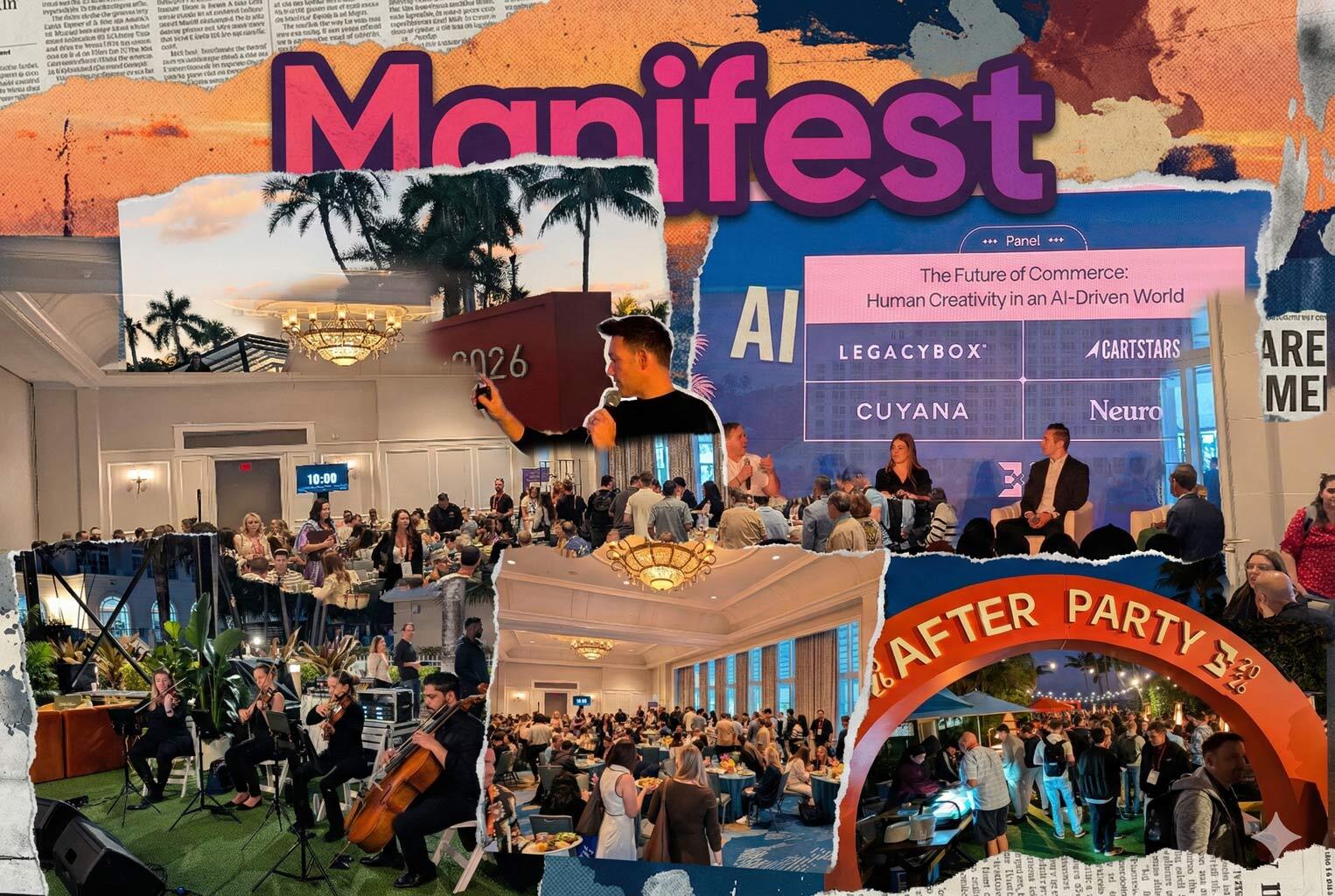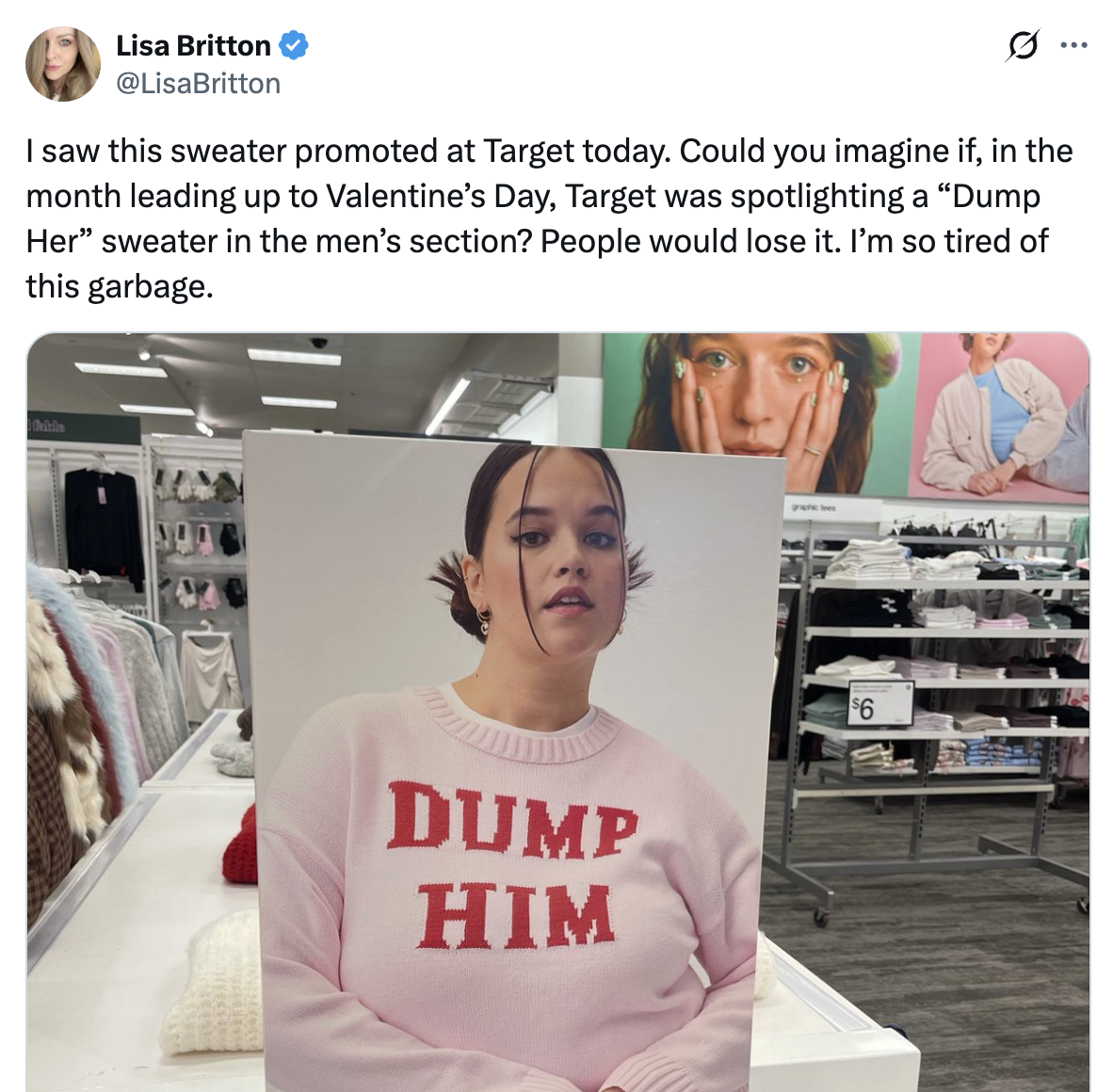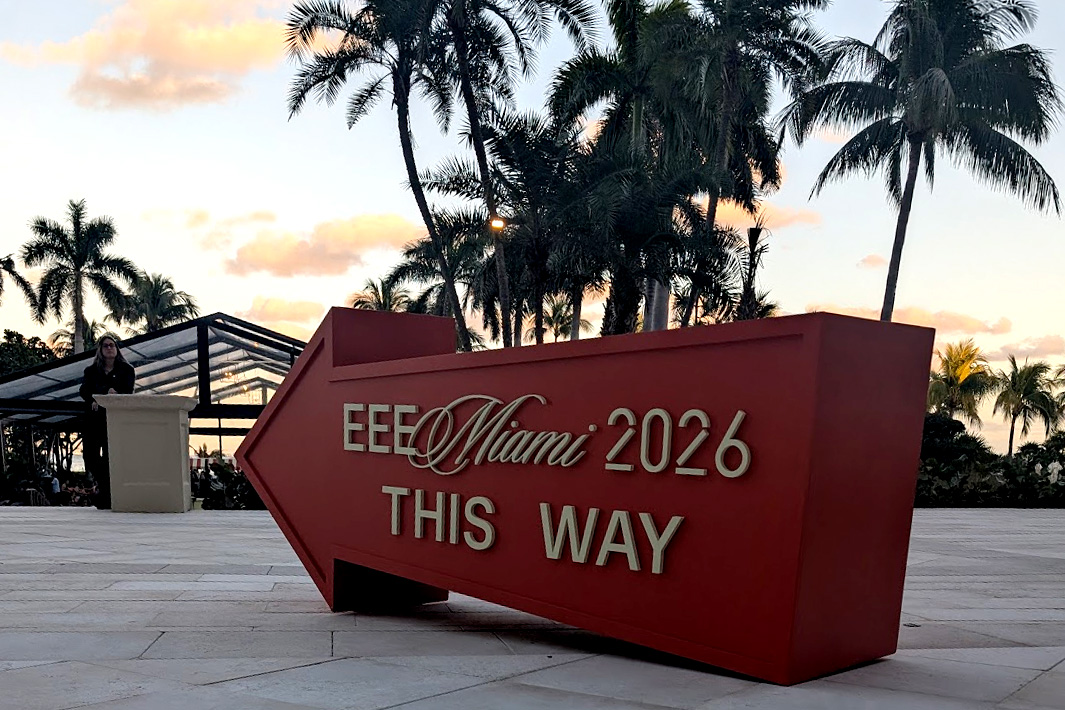
The Bora Bora Discourse: Klaviyo and Tarte Become Uncorked


We’re a day late but not a dollar short, futurists.
Before we unpack the latest in “the backlash to the backlash” in brand and SaaS discourse, I’m hoping to see you at the first VISIONS Summit of the year. Next week, March 13, we’ll be hosting our first VISIONS event of the year with our friends from Fermát Commerce.
Our evening of commerce futurism will feature interviews with cultural theorist Matt Klein, TikTok Shop rockstars Lisa and Paul Jauregui of BK Beauty, and many more. RSVP here. Show up early, we have a limited number of seats.

Rage, Uncorked (Revisited)
Disclosure: Klaviyo is an advertising partner of Future Commerce.
Social media discourse has a fairly predictable format: event, discourse, permission, backlash, and the (inevitable) backlash to the backlash. This week we watched two ends of an ecosystem go through accelerated cycles of this process.
On Monday, Klaviyo partners received an email announcing a new professional services program offering. The announcement comes just two quarters after the Boston-based marketing platform’s newly-minted IPO. The announcement of the professional service offering included details rarely seen in enterprise SaaS: transparency around its pricing, its purpose, and its prioritization of agency partners over their own embedded services team’s offerings.**
Meanwhile, halfway across the globe, Tarte Cosmetics was hosting its annual influencers trip; an event that has become something of a lightning rod for critique over the years. This year, the brand hosted a bevy of social media influencers and a handful of customers to Bora Bora, a remote island in French Polynesia.
While the two events are (literally and ideologically) worlds apart—only able to be correlated in a commerce-focused journal such as The Senses—the discourse that followed had familiar patterns that say more about the role of social media discourse in commerce than it does about inequities in SaaS or consumer businesses.
Critique comes during moments where customers feel emotionally disconnected from a brand. From our VISIONS report in May, 2022:
If [customers] don’t feel intrinsically connected to a product, or to the [brand] selling it, they have fewer reasons than ever to buy it… then, a form of romanticism dies. In our research, we found that 42% of consumers buy from products to support the brand or founder, despite not liking or desiring the product directly.
This may explain reactive marketing cycles and SMB customer growth with Klaviyo’s new upstart competitors. Relationship to the ‘brand’ is really a relationship to the people behind the brand, their accessibility, and the rationale that a demonstrably inferior product can be overcome through relationships.
In The Uncorkening (July, 2022), I wrote about a phenomenon where a singular critique gives way to a flood of mimetic participation. “Latent criticism, stymied by loud voices in an ecosystem, allow quieter voices [the] permission to speak up.” Thus, the ‘uncork’ in uncorking. Algorithmic priority helps divisive content find an audience; especially around current events. Voices of dissent ring loudly; and when it becomes trendy to critique there is an implicit invitation to participate in the discourse.
The ‘uncorking’ event Tarte Cosmetics began with a January 2023 influencer trip to Dubai. Following 2020 and the summer of BLM, and a heightened sense of corporate responsibility and multiplayer dynamics where brands were forced to participate in social issues, Tarte’s “lack of inclusion” of diverse influencers felt like a form of tone-deafness that was untenable.
Customers took to social media to criticize the social disparity of opulence during high inflation and economic uncertainty. Tarte’s CEO addressed the concerns head-on, but it didn’t stop the brand from playing back the cringe just four months later on a trip to Turks & Caicos… in May of that same year.
I’m necessarily drawing a false equivalency here to illustrate a point about the cycles and nature of online critique; B2B and consumer notwithstanding, human behavior is somewhat universal and predictable. For both brands—Klaviyo and Tarte alike— the acceleration of online discourse was aided by the already-uncorked frustration from its ecosystem.
For those passive observers, it would be a mistake to believe that either brand is irreparably damaged by this discourse. People don’t necessarily behave IRL in a way that’s consistent with their angry comments on TikTok. “I’ll never buy Tarte again” or “Klaviyo is dead to me” will no doubt wind up in a crisis comms deck recapping the week when the dust finally settles. What I’m more interested in is how these conversations require backstory, lore, and activate participation in each ecosystem in order to contribute to the conversation.
This makes everyone a willing and active participant in a brand ecosystem; whether you are a buyer or not.
For both Klaviyo and Tarte—and any other brand to have achieved incredible success and recognition in their respective fields—the debate will never really go away. it merely quiets for a moment before a new event starts the cycle again.
— Phillip
** Our full analysis of the Klaviyo announcement is for members only. A free preview of that discussion is on our main podcast feed. Access exclusive member-only content with Future Commerce Plus for just $20 monthly.

Sights & Sounds.Target launches a paid membership program, chasing new revenue streams. Muji collaborates with Japan’s housing agency to makeover old apartments, turning them into a hip lifestyle choice. “Where bureaucracy fails, commerce closes the gap.”


Touch.Luxury skiing in the Alps introduces 'ski butlers' for an even ritzier experience. Coperni reveals the Air Swipe Bag.

The Palate. Fort Lauderdale gains a cool reputation while Miami decides to break up with Spring Break, leaving thousands of independent retailers and restauranteurs uncertain of the future. Hidden Valley partners with Cheez-It as one of seven new SKUs. The ‘dirty soda’ trend gives us the ick as KDP partners with Coffee mate in a category-redefining offering.


The Pentagon plans for more ambitious, affordable jet fighters with AI pilots. Elon Musk predicts AI and EVs will cause electricity and transformer shortages by 2025. Smartphones have “made every place feel the same,” diminishing the uniqueness of locations. The Litter Robot shows how paid media is done with a CEO apology for transporting cats back in time to the 1300s.











.svg)
